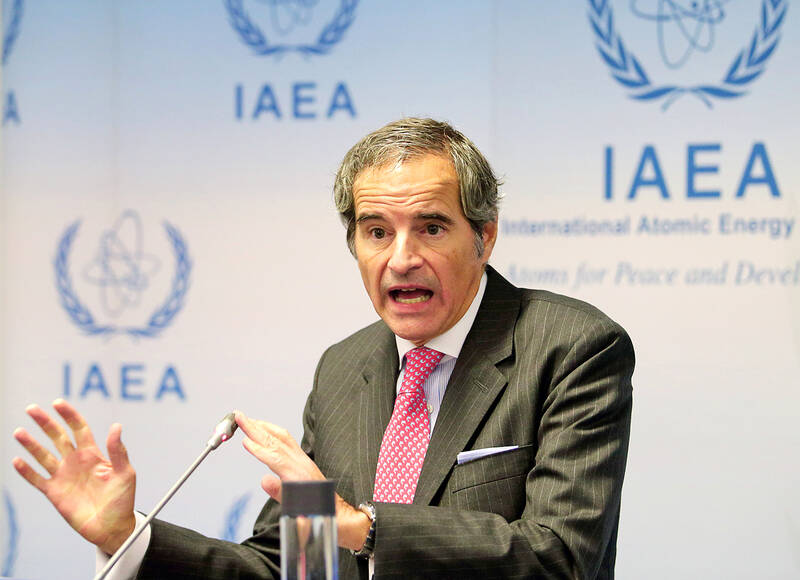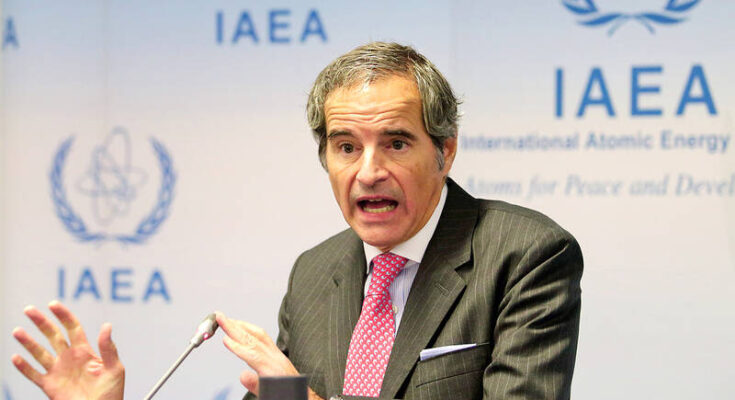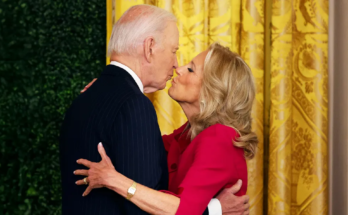RETALIATION: Tehran said it would launch a significant series of ‘advanced’ centrifuges after the nuclear watchdog said it had failed to comply with non-proliferation obligations
AFP, TEHRAN
Iran yesterday said it would launch a series of “new and advanced” centrifuges in response to a resolution adopted by the UN nuclear watchdog that censures Tehran for what the agency called lack of cooperation.
The censure motion brought by Britain, France, Germany and the US at the 35-nation board of the International Atomic Energy Agency (IAEA) follows a similar one in June.
The resolution — which China, Russia and Burkina Faso voted against — was carried with 19 votes in favor, 12 abstentions and Venezuela not participating, two diplomats said.

Secretary General of the International Atomic Energy Agency (IAEA) Rafael Mariano Grossi attends a press conference during an IAEA Board of Governors meeting at the IAEA headquarters of the United Nations seat in Vienna, Austria on Wednesday.
Photo: EPA
“The head of the Atomic Energy Organization of Iran issued an order to take effective measures, including launching a significant series of new and advanced centrifuges of various types,” a joint statement by the organization and Iran’s Ministry of Foreign Affairs said.
Centrifuges are the machines that enrich uranium transformed into gas by rotating it at very high speed, increasing the proportion of fissile isotope material (U-235).
“At the same time, technical and safeguards cooperation with the IAEA will continue, as in the past” and within the framework of agreements made by Iran, the joint statement added.
Iran’s retaliatory measures “are reversible if this [Western] hostile action is withdrawn or negotiations are opened,” Tehran-based political analyst Hadi Mohammadi said.
The resolution comes with tensions running high over Iran’s atomic program, with critics fearing that Tehran is attempting to develop a nuclear weapon — a claim it has repeatedly denied.
The confidential resolution seen by Agence France-Presse says it is “essential and urgent” for Iran to “act to fulfil its legal obligations” under the Non-Proliferation Treaty (NPT) ratified in 1970.
The NPT requires signatory states to declare and place their nuclear materials under the control of the IAEA.
The text also calls on Tehran to provide “technically credible explanations” for the presence of uranium particles found at two undeclared locations in Iran.
In addition, Western powers are asking for a “comprehensive report” to be issued by the IAEA on Iran’s nuclear efforts “at the latest” by spring next year.
The resolution comes just as IAEA Director-General Rafael Grossi returned from a trip to Tehran last week, where he appeared to have made headway.
During the visit, Iran agreed to an IAEA demand to cap its sensitive stock of near weapons-grade uranium enriched up to 60 percent purity.
“Iran did not start the cycle of provocation — the Western side could, without passing a resolution … create the atmosphere for negotiations if it really was after talks,” expert Hadi Mohammadi said.
In 2015, Iran and world powers reached an agreement that involved the easing of international sanctions on Tehran in exchange for curbs on its nuclear program to guarantee that Tehran could not develop a nuclear weapon — something it has always denied seeking to do.
However, the US unilaterally withdrew from the accord in 2018 under then-president Donald Trump and reimposed biting economic sanctions, which prompted Iran to begin rolling back on its own commitments.
On Thursday, Iranian Deputy Foreign Minister for Legal and International Affairs Kazem Gharibabadi warned of Iran’s potential next step.
“Iran had announced in an official letter to European countries that it would withdraw from the NPT if the snapback mechanism was activated, and the [UN] Security Council sanctions were reinstated,” Gharibabadi said in a late-night interview with state TV.
The 2015 deal contains a “snapback” mechanism that can be triggered in case of “significant non-performance” of its commitments by Iran. This would allow the UN Security Council to reimpose all the sanctions it had imposed between 2006 and 2015 over Tehran’s nuclear activities.



